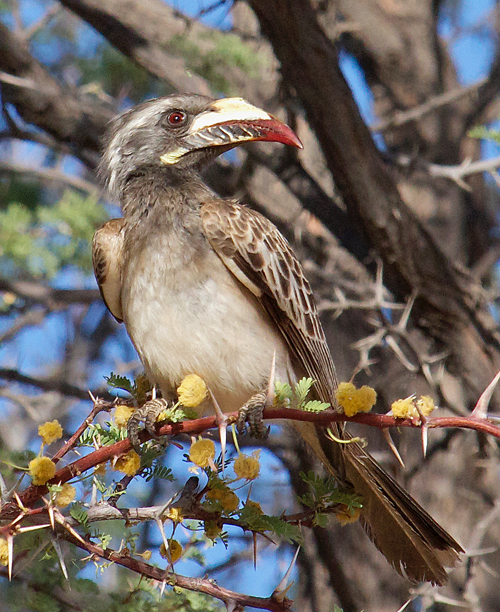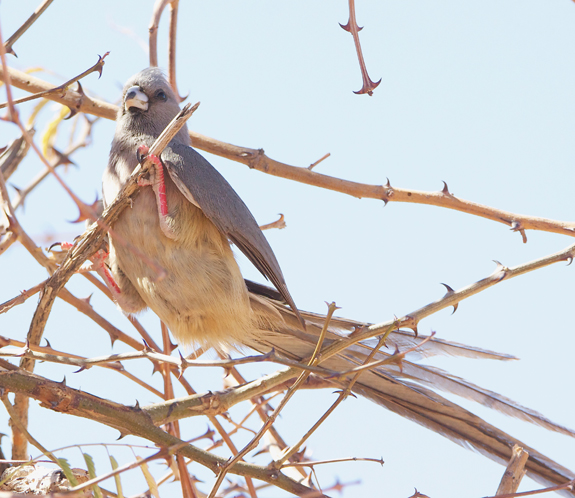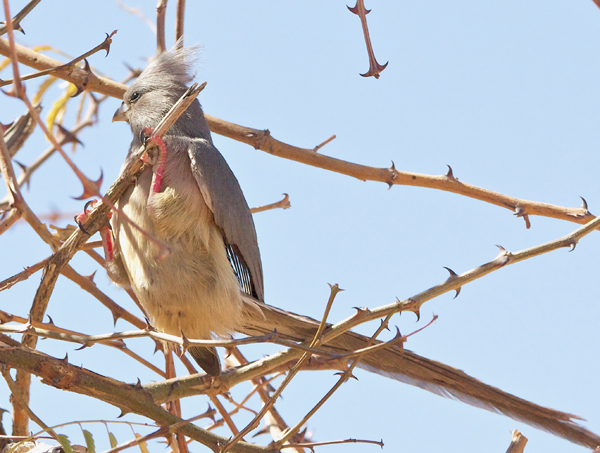Page 3 of 10
Re: Avian Feet
Posted: Thu Sep 03, 2020 8:28 pm
by ExFmem
Syndactyly – two or more toes (usually III and IV) are fused to varying degrees.
Syndactyly is common among kingfishers, hornbills and beeeaters (Coraciiformes) and there are many intermediate examples of birds with partly fused toes in this group. Extreme syndactyly occurs in the wood-hoopoes and hornbills.

Re: Avian Feet
Posted: Thu Sep 03, 2020 8:29 pm
by ExFmem
Pamprodactyly – is found among some mousebirds and swifts, and is characterised by all four digits being directed forwards, enabling these species to hang their weight on all four toes and even feed upside-down.


********************
I don’t have any Trogons

Re: Avian Feet
Posted: Thu Sep 03, 2020 8:33 pm
by ExFmem
(If you do a topic on chicken legs, I can take a selfie and contribute to that also
![Photo [O]](./images/smilies/camera.gif)

)
Re: Avian Feet
Posted: Thu Sep 03, 2020 9:16 pm
by Alf
Ex


Re: Avian Feet
Posted: Fri Sep 04, 2020 7:56 am
by Flutterby
Re: Avian Feet
Posted: Fri Sep 04, 2020 8:50 am
by Lisbeth
Re: Avian Feet
Posted: Fri Sep 04, 2020 10:26 am
by Richprins
Wow, Ex!

(I love chicken legs...

)
Re: Avian Feet
Posted: Fri Sep 04, 2020 10:50 am
by Klipspringer
ExFmem wrote: ↑Thu Sep 03, 2020 8:27 pm
(Cropped the pics quite a bit to try to get a closer look at the feet.)
Anisodactyly – has three digits (numbered II, III and IV) orientated forwards and digit I (the ‘big toe’, or hallux) pointing backwards.
(Note: rollers are listed on the chart under Syndactyl, but they are described in the written description of Syndactyly as having “true anisodactyl feet.”) 
The Rollers are syndactyl, but the the toes are less fused than in other Coraciformes and look anisodactyl like in your photo.
Re: Avian Feet
Posted: Fri Sep 04, 2020 10:55 am
by Klipspringer
Anyone with an owl, black-winged kite or osprey?
They can rotate the toe and switch toe arangements
Re: Avian Feet
Posted: Fri Sep 04, 2020 11:45 am
by Lisbeth



